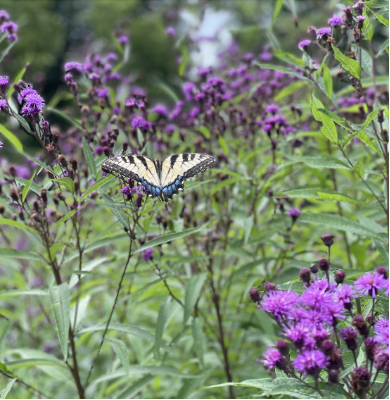An Update on the Land Trust Alliance partnership with Northeast Seed Network: Land Trusts Pioneering Wild Seed Collection for Local Ecosystem Resilience
- Sefra Alexandra
- May 12, 2025
- 3 min read
Updated: May 14, 2025
In an era of climate change, habitat degradation, and invasive species, the role of land trusts has become more critical than ever—not only as stewards of conserved land, but as guardians of local plant genetics. These protected lands serve as reservoirs of ecotypic seed—native plant populations that are uniquely adapted to their specific ecoregions. In southern New England’s Ecoregion 59, an innovative effort is underway to establish standards and protocols for wild seed collection on land trust properties to support habitat restoration and climate resilience.
The Aspetuck Land Trust (ALT), in collaboration with Highstead and the Northeast Seed Collective/ The Ecotype Project, is at the forefront of this work. Supported by a Climate Smart Agriculture and Forestry grant from the Connecticut Department of Agriculture, the team is piloting a seed-to-plant pipeline: collecting wild native seeds on land trust properties, amplifying them on local farms, and reintroducing them into restoration projects across both natural and urban landscapes.
This process starts with careful, sustainable seed collection. In 2023, farmer Dina Brewster and conservationist Geordie Elkins collected seeds of swamp white oak (Quercus bicolor), New York ironweed (Vernonia noveboracensis), swamp milkweed (Asclepias incarnata), and boneset (Eupatorium perfoliatum) from ALT properties. These seeds were then grown out at The Hickories in Ridgefield, CT and at Highstead in Redding, CT ensuring genetic continuity with local ecotypes.
New York Ironweed (Vernonia noveboracensis) ecotypic seed collected from an Aspetuck Land Trust property, growing in a seed increase plot at the Hickories in ecoregion 59. Photo Credit: Sefra Alexandra, The Ecotype Project
One standout application of this local seed sourcing is the creation of Miyawaki micro-forests in Bridgeport, Connecticut. The Miyawaki Method—a Japanese technique involving dense, layered plantings of native species—has been employed by ALT to restore biodiversity and ecological function in urban public areas. In 2023, over 1,300 native trees, shrubs, and plants were planted at three schools. In 2024, another 1,700+ plants established forests at four more schools. These living forests not only sequester carbon and manage stormwater—they also serve as living seed banks and wildlife sanctuaries that reconnect city residents with native biodiversity.

Central to this approach is the use of ecotypic seed—genetically appropriate plant material sourced locally and grown with full knowledge of its provenance. Tracking “passport data” (information about the origin, collection site, and environmental conditions of each seed accession) ensures that restoration efforts are ecologically compatible and resilient over time.
The importance of creating standardized seed collection protocols cannot be overstated. With partners ranging from the Wild Seed Project in Maine to Dan Brubaker’s Seed-to-Seed initiative at the Greenwich Land Trust, a growing network of conservationists and farmers are working to create a unified framework for ethical, sustainable, and impactful seed stewardship.
Dan Brubaker of the Seed-to-Seed initiative of the Greenwich Land Trust, teaches members propagation techniques of seed grown ecotypic plants utilized on their properties for ecological restoration.
The goal? To empower land trusts across the Northeast and beyond to become active participants in native plant conservation and restoration—collecting, propagating, and redistributing local seed to restore degraded ecosystems and push back against the tide of invasive species. The Northeast Seed Network is weaving together these efforts into a collaborative movement to ensure that native plants—and the communities that depend on them—can thrive for generations to come.
Right seed. Right place. Right now.












Comments